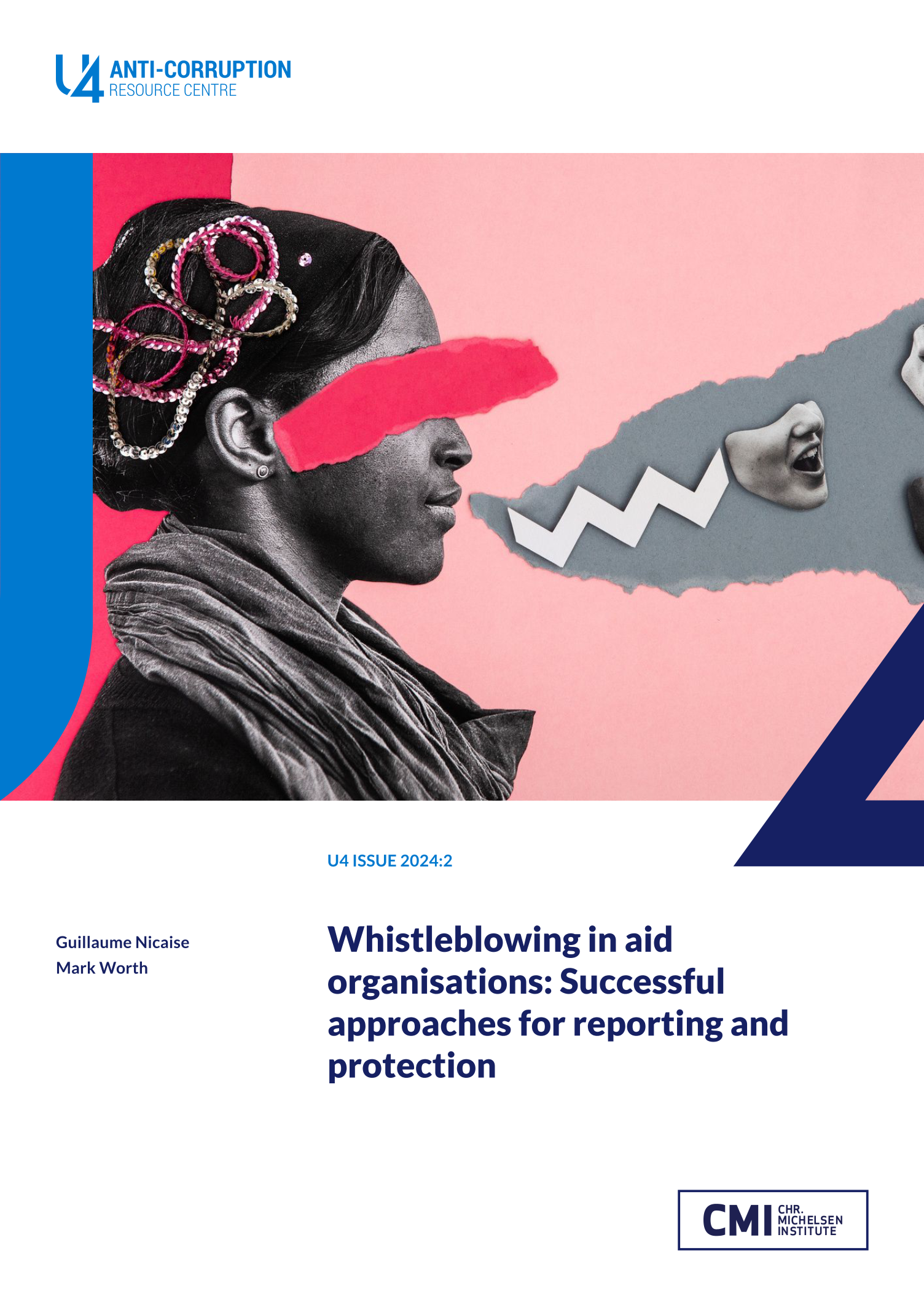Main points
- All aid organisations rely on whistleblowing to find out about corruption and other irregularities; however, significant variations exist in their policies and practices.
- There is a need to tailor whistleblowing channels to specific contexts, operational environments, and target audiences – while ensuring gender and inclusivity considerations – to improve accessibility. Best practices include engaging with trustworthy local organisations for receiving alerts, and relying on locally trained staff for face-to-face interactions.
- Whistleblowing management processes emphasise the principles of anonymity and confidentiality, security, and credibility, with a victim-centred approach. Yet, some departments in aid organisations lack independence in handling reports, potentially compromising response capabilities and prioritising organisational interests over individuals.
- Best practices emphasise a ‘speak-up’ and anti-corruption culture supported by the top management, as well as an ombudsperson providing neutral ethical advice.
- The ability of aid organisations to ensure whistleblower protection in recipient countries is limited by diverse legal frameworks and power dynamics. Enhancing whistleblower protection would require securing collaboration with legal authorities and offering guidance to potential whistleblowers.



